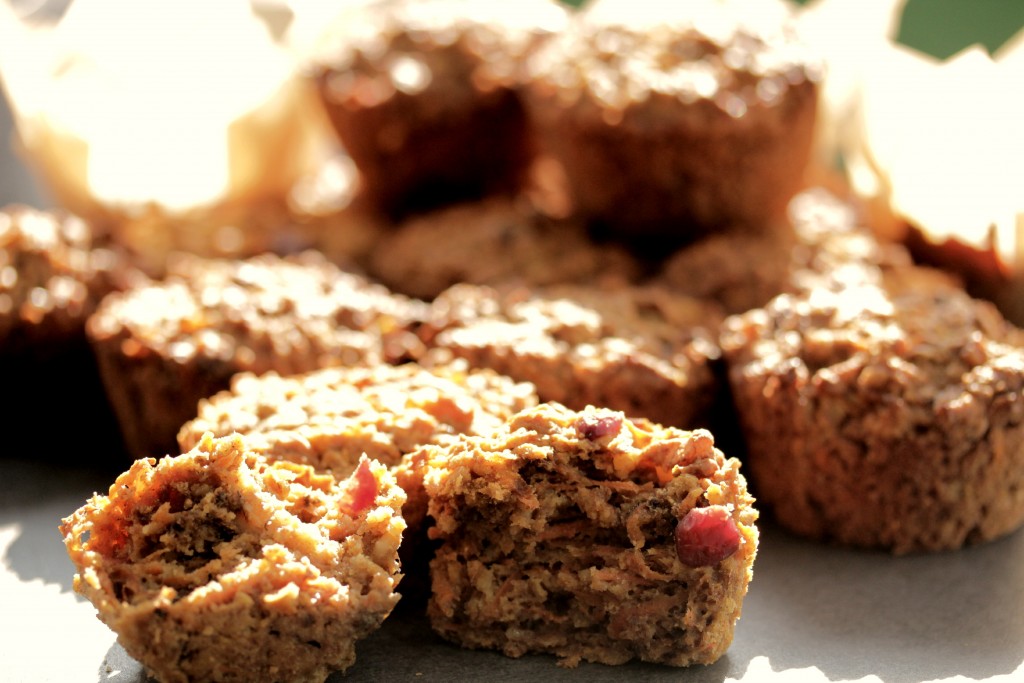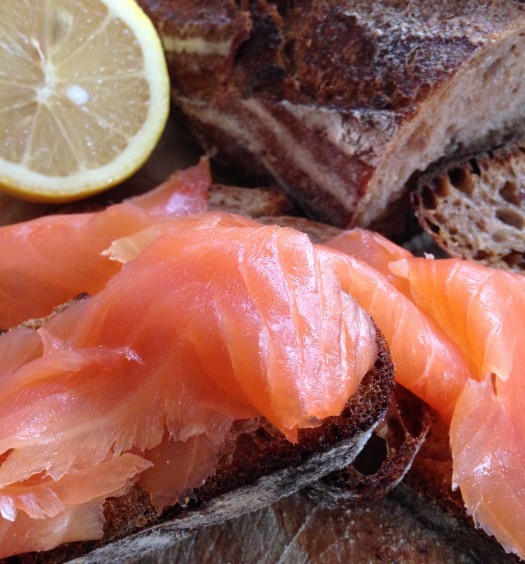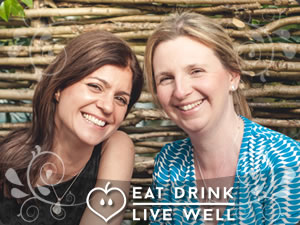Muffins aren’t usually a healthy choice for breakfast. The reality is they’re often just oversized cupcakes for adults. Yet for many of us they’re still the breakfast-to-go option. We wouldn’t think it’s ok to scoff a slice of Victoria sponge first thing but it just seems acceptable to eat a deceptively wholesome-looking ‘healthy’ apple, bran breakfast muffin.
The worst offenders can contain over 650 calories. Most of these calories are from fat (note the greasy paper wrappers they come in), often providing a third of the fat you’re supposed to eat in an entire day (and not the good kind of fat we recommend). As for salt, the World Health Organisation recommends no more than 2000mg of sodium per day, but most of the muffins I have seen have at least 25 percent of that, some have the same amount of salt as a Burger King Whopper. Probably the worst offender is sugar. Some muffins can exceed the recommended 6-7tsp daily maximum by 100 percent – the Starbucks lemon poppyseed muffin contains a whopping 11tsp of sugar!
Low-fat muffins aren’t necessarily any better and quite possibly worse. When you cut out the fat you’re left with refined flours and sugar – which can lead to blood sugar imbalances, cravings and ultimately weight gain. Low-fat foods don’t taste as good so manufacturers bump up the salt and sugar (or artificial sweetener) to add flavour. Take Starbucks’ skinny blueberry, it’s still 317 calories (roughly equivalent to a bacon and egg McMuffin) and contains over 6 teaspoons of sugar.
To boost the nutritional properties of any muffins they need to be rich in fibre, protein and healthy fats which keep you full and slow any sugars down. We love our homemade ones that actually provide a well-balanced, portable meal. The combination of carrot and banana makes them deliciously moist and they are really filling. Plus they taste just like a wholesome carrot cake and are a great, handy treat to have any time of the day.
We use coconut sugar and banana to sweeten them. Coconut sugar is really sweet but it’s low glycaemic level means it has little impact on blood sugar levels. It’s granulated from the sap of coconut flowers and it works really well for baking. High in nutrients, unprocessed and with a rich caramel flavour it’s really a healthier sweetener than regular sugar. Supermarkets are beginning to stock coconut sugar but it is readily available from ocado or health shops. If you don’t have coconut sugar, feel free to substitute with honey or maple syrup instead.
You can also substitute any dried fruit or nuts and seeds to the recipe. It may look like a long list of ingredients but you’re simply throwing everything into a bowl and then into the oven so it’s very hassle-free. They freeze really well, perfect for storing batches and defrosting the night before for a healthy grab and go breakfast.
- 1 cup oats
- 1 1/4 cup spelt flour or wholemeal flour
- 1/4 cup coconut sugar or maple syrup
- 1 tsp cinnamon
- 1/2 tsp baking powder
- 1/2 tsp bicarbonate of soda
- 1 egg
- 3 carrots grated
- 1 banana mashed
- 1/2 cup walnuts or any nuts or seeds
- 1/2 cup dried cranberries or other dried fruit
- 1/3 cup almond milk or any milk
- 3 tbsp coconut oil
- 1/2 tsp vanilla extract
- Preheat the oven to 160 degrees C and lightly grease a muffin tray or you can use large cupcake cases. Place all the dry ingredients in a bowl and mix together.
- In a separate bowl, combine all the wet ingredients. You may need to use a fork to mash the coconut oil until it combines well.
- Add the dry ingredients to the wet, quickly stir to make sure it's all incorporated. Don't worry that the mixture seems very wet. Divide evenly into the muffin tray or paper cases.
- Bake in the oven for half an hour until turning golden. We prefer not heating above 160 degrees to protect some fragile nutrients from being destroyed.
We hope you enjoy this recipe, do let us know by commenting below or sending in your pics so we can share on social media. Don’t forget to subscribe to our newsletter to be the first to keep up with the latest nutrition news, healthy recipes and articles written by your Nutritional Therapists Emma and Caroline.






